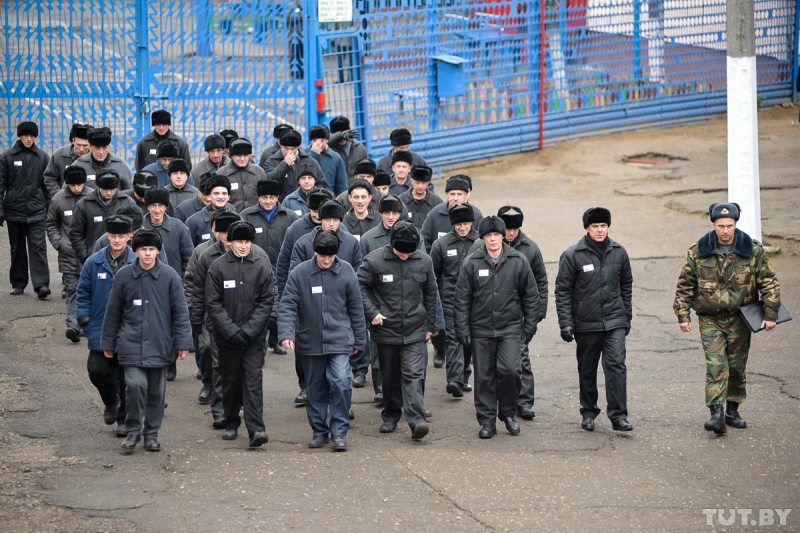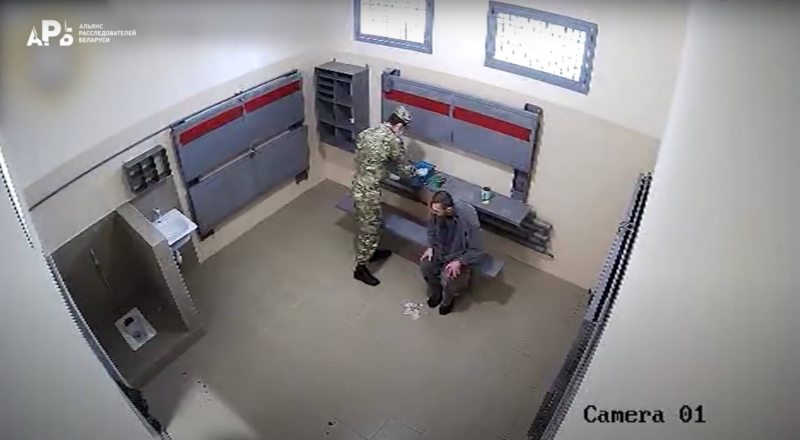Unveiling the shadows of Škloŭ colony: A former inmate's account on life and work conditions in jail
Dzianis (name changed for safety reasons), a 22-year-old from Brest, was arrested on July 21, 2020, for expressing his dissent through graffiti against the non-registration of a presidential candidate, Viktar Babaryka. In November 2020, he was sentenced to 24 months in jail, to be served in Škloŭ colony No. 17. After his release, Dzianis told Viasn about his imprisonment during the protests, as well as about the torture and inhumane working conditions in the Škloŭ colony.
Arrest and Pre-Trial Detention
“Humiliations and insults accompanied me all the time,” Dzianis shared. His arrest was conducted at dawn by five officers, who confiscated all his electronic devices and treated his possessions with mockery and disdain. During his initial questioning, he was subjected to a good cop, bad cop routine accompanied by a barrage of threats. “It didn’t come to physical violence only because I set the dialogue that way. But I couldn’t stay silent,” Dzianis explained.
Dzianis spent his initial two weeks in the detention center in Baranavičy, where he describes the conditions as very damp, with standing water in the cell. “The floor was noticeably wet, and there was water standing in pits,” he said. In addition, he shares that a co-detainee with epilepsy and mental health conditions had regular night seizures and defecated on himself, contributing to a challenging living environment and highlighting the blatant disregard for basic hygiene and medical attention in the center.
Dzianis was later transferred to Brest, where he was held for around five months before his trial. During this time, he heard about ongoing protests in the country. The detainees were hopeful, Dzianis recalls, waiting for when—not if—opposition candidate Sviatlana Tsikhanouskaya would become the president and release them all.

- Illustrative photo: TUT.BY
Harsh reality in Škloŭ colony No. 17
In the end, Dzianis was sentenced to two years in prison. He was transferred five times during his detention and subjected to harsher conditions than before. He describes the first transfer as the most brutal: “They crammed 11 of us into one cell... The convoy behaved inadequately: if an older man or a disabled person were walking slowly, they would push him and shout obscenities, and threats. It creates an oppressive atmosphere that is hard to convey with words.”
Dzianis was sent to Škloŭ colony No. 17 at the end of December 2020. He describes in detail the conditions he experienced during his incarceration in the facility from the end of 2020.
According to Dzianis, upon his arrival at the colony, he faced different treatment than other “non-political” inmates. “When the staff learned the details of my case, they immediately took a biased approach. I was not treated like an ordinary inmate, who is incarcerated, for instance, for theft or murder,” Dzianis explained.
The situation in the colony became more tense as the population of political prisoners grew. Dzianis described his own experiences: “Everything became much stricter. In the Škloŭ colony, the staff beat political prisoners. If you end up in solitary confinement, there’s an 80% chance a political prisoner will be beaten there. They were also forced to sing the Belarusian anthem.”

- Vitold Ashurak in the punishment cell of colony No. 17. Screenshot: Belarus Alliance of Investigators
Dzianis also addressed the passing of Vitold Ashurak, who died while in the colony. The details surrounding Ashurak’s death caused concern among the inmates. Dzianis noted, “Everyone in the colony learned about his death immediately. Everyone was convinced that Vitold had been beaten to death.”
Psychological strain and inhumane working conditions
Dzianis emphasized the harsh conditions, particularly for political prisoners. He said the colony’s regime and operations department staff exerted specific pressure on political inmates. “One of these departments even has an entire room with clubs and other items for beating people. The inmate is made to wear a specific device so they can’t see who is beating them.”
In addition to physical abuse, the mental strain on prisoners was significant. Dzianis spoke about how the onset of war in Ukraine affected the prison: “For any disputes or statements against Russia, inmates were thrown into solitary confinement. And there, regardless of whether you’re political, they’d beat you mercilessly.”
Living and working conditions at the colony were extremely tough. “We worked in a thorough workshop at minus 30 degrees Celsius (approx. -22 degrees Fahrenheit), where it was as cold as outside. There was no automation — everything was done manually,” Dzianis said.
The sanitary conditions were equally deplorable. The toilets were wooden cabins with frozen waste protruding from them during the winter months. And in the summer, they were described as “toxic things” that one could barely approach.
As per Dzianis, there was also a culture of reporting fellow inmates for wrongdoing. He stated, “Informing in the colony is very developed. There, you absolutely trust no one, at most one or two inmates in the unit.”
Release and psychological aftermath
Upon his release, Dzianis left Belarus. However, despite his newfound freedom, he expressed that he had not truly escaped the psychological confines of the colony. He stated, “I didn’t feel that I had left prison for freedom.”

















